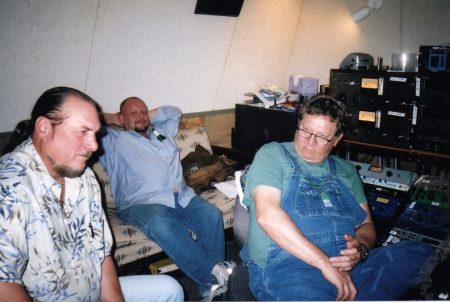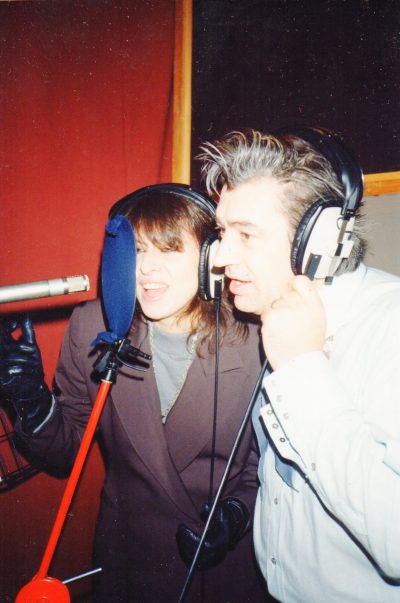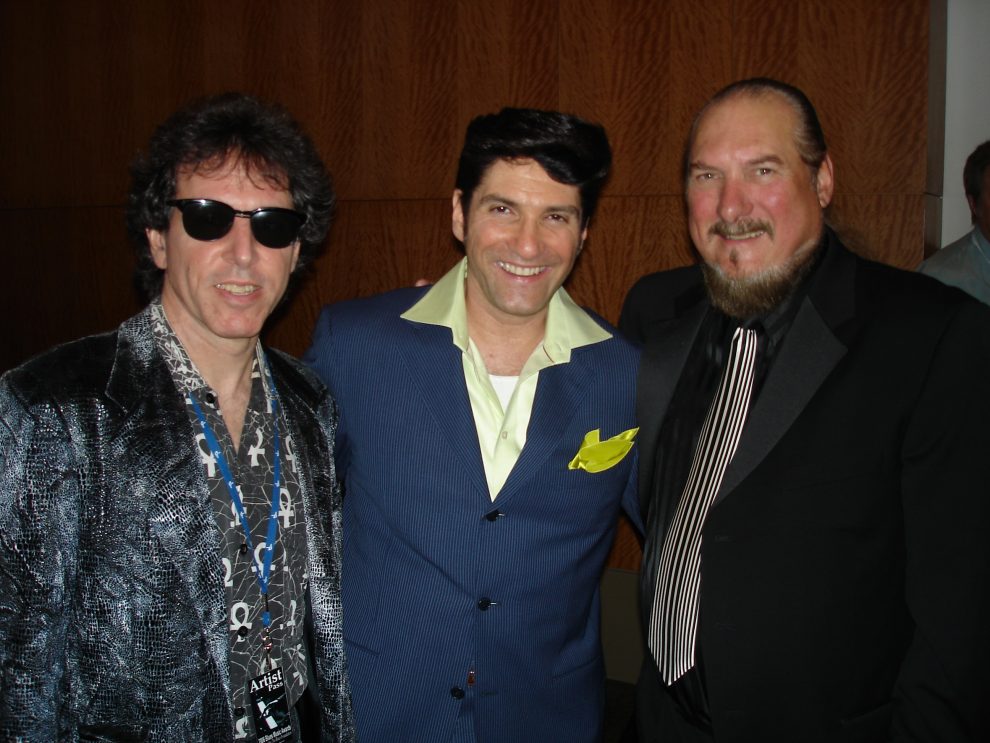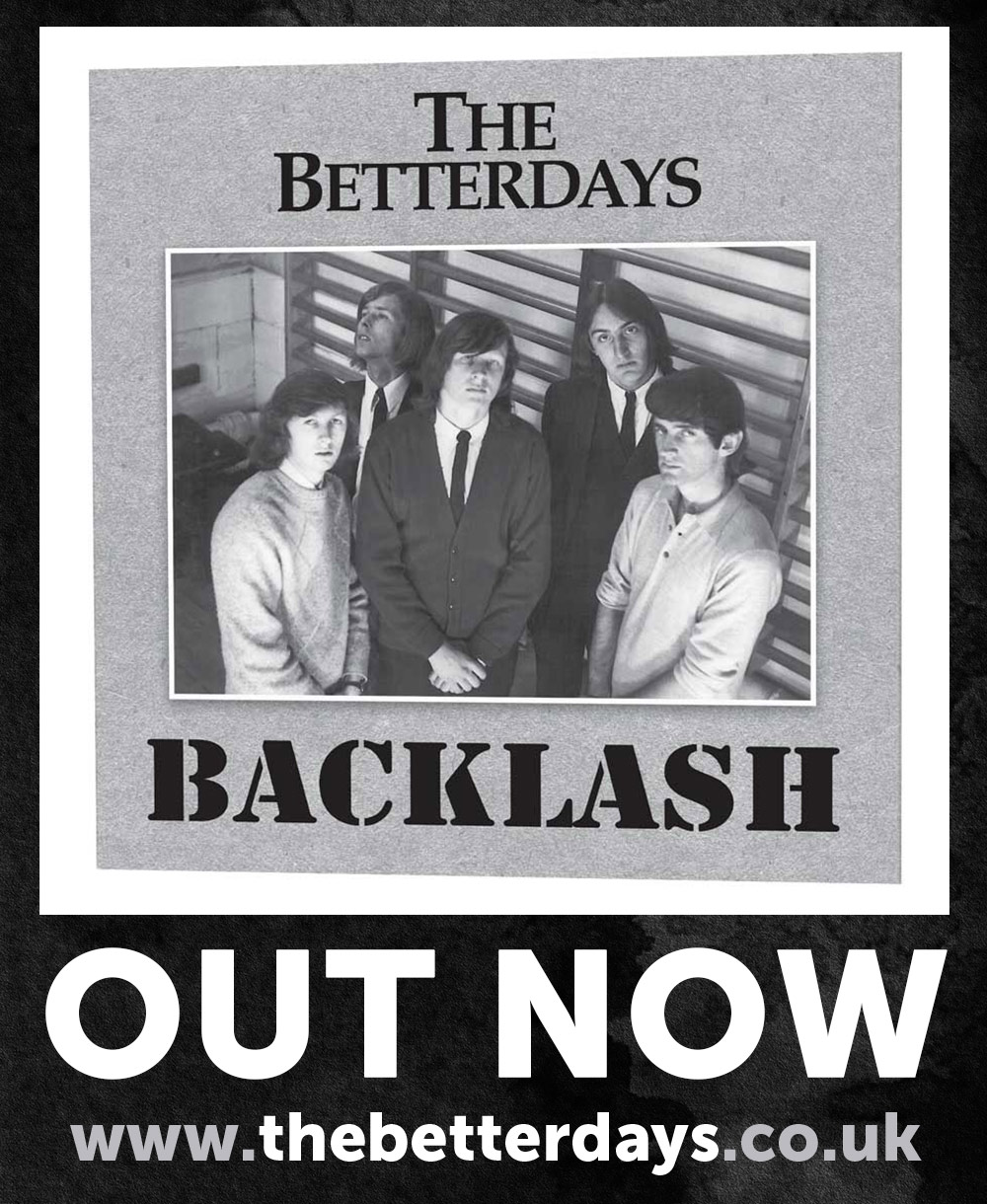The monthly column from celebrated US-based “A-List” session musician, hit songwriter, producer and one time Rolling Stone magazine writer, Jon Tiven. Lifting the lid off the business of making music…
Being a record producer is a fantastic thing when you’re working. But hardly anybody has any idea what you really do – they think it’s like being a film producer. Wrong!
Just about everybody who does the job has a different job description. When I first got into the racket, there were a few avenues of approach that seemed reasonable; although now I’ve found the game has changed and there are aspects of the landscape that I admit I’m unaware of.
What I am about to impart is based on my own experience, and although it feels pretty extensive to me, I’m certain this is only a small part of a big picture.
Producer is a title that can cover any number of responsibilities or be entirely specific. There are different skill sets in music production that have value – excellence in engineering, song writing, or musicianship can be key.
But there are other non-quantifiable talents that can make a record producer not just viable, but a force unto himself. Then there are people who call themselves producer for bank-rolling projects in which their participation is financial/administrative rather than artistic.
For me, the best way to continue working has been to keep finding interesting acts to produce. That’s the hard part. Making the record should be more like play than work, with the participants in the recording project enjoying the experience. If not, you’ll hear it in the record. Then comes the really hard part: Finding a label or other platform to reach an audience.
When the ambition to produce first struck me, I looked up to people like Andrew Oldham, Tony Visconti, Jerry Wexler, Dan Penn, Jimmy Douglass and Eddie Kramer, all of whom had vastly different reference points for what they did.
Education…
I ended up working with five of the six in some capacity, and became friendly with Jerry after he retired, so a lot of my education was received first or second-hand. As a teenager, I met Andrew when he was living in Connecticut producing a few American bands for Motown, decompressing from his Rolling Stones/Immediate Records experience.
What Andrew brought to a session was vibe and intelligence, total artistic vision, and a sensibility that made his records cinematic. He left the engineering to the engineer. He knew he’d hired a good one, so he didn’t have to touch a fader.
Andrew didn’t have the command of the traditional musical vocabulary that would allow him to conduct a symphony, yet he knew how to get what he wanted out of the musicians with whom he chose to work.
I was amazed. Here I was, thinking that a true record producer should have all of the expected tools at his fingertips, while Andrew had budgets to hire the best and didn’t really have to messy his hands with all of the details.
His direction owed more to cinematic references, although he did pay particular attention to vocal and drum performances. Andrew taught me that once you have a great track, it’s no sin to try several different vocalists on it. If all of the resulting recordings are released as records, all the better. That’s a lesson I took to heart quickly; used to great effect throughout my career.
I had no doubt that Andrew Oldham was responsible for “that something extra” that graced the records that bore his credit, and no one else could clone that personality. Not that his musical and sonic tastes didn’t come into play.
He came up with a lot of the song choices and laid the reverb on thick for effect. But Andrew knew/knows what every producer comes to learn in time…..Often the best course of action is to stand back and let the artist find his way.

TV time…
Tony Visconti is a double threat. A brilliant engineer and also a fine musician.
Together we produced a tribute album to Otis Blackwell, and more than anything he showed me that patience is a great virtue.
Especially when you’re mixing. Tony is a very hands-on guy in the studio, and even though we had a budget to hire the best engineers, eventually Tony would take charge of the board and bring it home.
There were a few sessions for which I had to go overseas (without him) to cut Chrissie Hynde and Chris Spedding, and Tony was annoyed that the engineer had, in his view, done a ‘less than spectacular job’ of recording the vocals. But we got past that bump in the road and the result was a wonderful album.
We wrote a couple of songs together, including a Christmas song “Christmas In The City” that Spooner Oldham sang on a Christmas album I produced for charity. (“Holiday Heroes”).
The Penn is mightier than the sword…
Dan Penn is first and foremost a songwriter, or let’s say a great songwriter. I initially visited Nashville in 1990 for the express purpose of writing with Dan, and we certainly did that.
In just two visits we wrote seven songs which have been recorded by the likes of B.B. King, Irma Thomas, Howard Tate, Wilson Pickett, and Buddy Guy, among others.

Dan is also a terrific producer and engineer, and when I produced Ellis Hooks’ second album, I enlisted Dan to mix some of it.
I knew that Dan would bring more of a “rhythm & blues” approach, and I welcomed that. He heard the relationships of instruments differently than I did, favouring the rhythm section and backing off the guitars.

Dan brings his own personality and flavour to the record, but not in a way that takes away from the artist.
No one would ever complain about a vocal being too soft on a Dan Penn record.
Dan is a feel guy, a creature of strong instincts, and being around him is a lesson in listening to your inner voice.
When Frank Black asked me to produce him, I knew cutting in Dan’s basement with Dan behind the board would bring a very sweet and gentle sensibility to a group of songs that would benefit from his approach.
I came back in 2011 to cut Steve Cropper’s “Dedicated”, and for the basic tracks with Cody Dickinson & Steve Kalinich for our “Shortcuts To Infinity”.
Dan is simply a wonderful person to be around professionally and personally, and I’m lucky to be able to call him a friend.
Jimmy Douglass is best-known for his recent work with Justin Timberlake, Pharrell, Missy Elliott and Timberland, but when I met him, those artists were still in his future.
The Rolling Stones, Aretha Franklin, and most of the roster at Atlantic Records were on his resume, and that’s all I needed to know when he engineered and mixed several of my tribute records (Don Covay, Arthur Alexander), as well as my sessions producing B.B. King, Graham Parker and Frank Black.
Jimmy plays several instruments well enough to add his special flourishes to records and/or write songs, but his main axe is the recording console. He really knows how to make the most of a groove, and managed to put mixes to bed that I thought would keep me up for days. His command of the studio is immense, and he manages to keep positive in the face of adversity and smile through the catastrophes.
If you spend as many hours in the studio as we did, there are times when the technology will try your patience. Without the right attitude, this can be harmful to the health of the record and your head. But our trucks always avoided the ditches at the side of the road.
Eddie Kramer mixed the Wilson Pickett album, “It’s Harder Now”, which I produced, and I was thrilled to have the man who was responsible for the Jimi Hendrix catalogue, taking my record to the next level. Eddie would not have any hands on the mixing board, but his. I wouldn’t have wanted to get in his way for a second.
The wrong man in charge…
With some of my past projects I had been completely hands-on at the mix, but Eddie wanted to take a few hours by himself before I’d get to hear where it was going.
I would leave him to find the sound he wanted, and then come in to tweak the arrangement to make sure the dynamics came through. He managed to use just the perfect EQ, reverb and delay to bring extra life to the recordings without artifice.
Every time you’re in the studio, you have the opportunity to learn. Even with a bad producer, there are lessons to be gleaned from the debacle.
If you’re the musician working with a bad producer, you get to see first-hand what the wrong man in charge can do to damage the presentation of material. And you can promise yourself never to do that; and bring the benefit to not just yourself, but those you work with.
I was fortunate enough to be able to mix it up with the greats, and I heartily recommend it. I don’t suggest producing your first sessions, if you can help it. Those who have trodden here before can teach a few basics.
But if you get the chance to run your own show, remember that the guy who produces a hit record is a genius. The guy who makes a flop is a heel – and there’s very little in-between.
By Jon Tiven

















Recent Comments